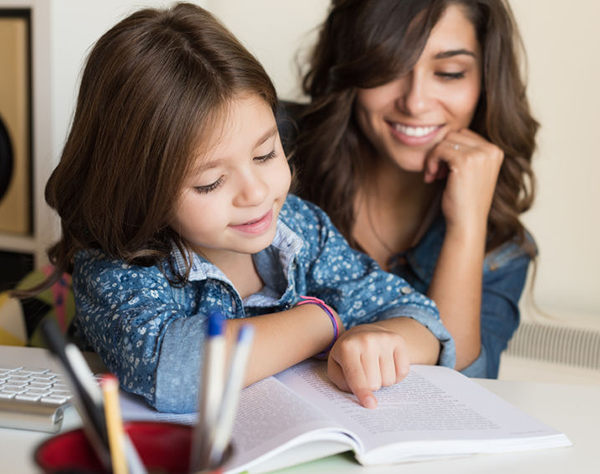At-Home Learning Tips for Parents: Teacher Tips for Parents

At-Home Learning Tips for Parents
While teachers play an important role in a child’s educational experience for a year or maybe a few, parents are in it for the long haul. Most parents were their kids’ primary teachers long before their children started school, reciting with them their ABCs and 123s and teaching them the finer points of sharing and using manners. Once children start school, parents tend to step back and allow the experts to take the lead in teaching language arts, math, social studies, science, and the arts. However, no matter how prepared, understanding, and imaginative teachers are in their approach, parents remain the most important teachers as children grow and advance.
As such, helping parents realize the important role they play by encouraging them to continue at-home learning can make for a very successful year for students—and for you. Pair the tips below with a back-to-school-night discussion on how you see your students’ parents as powerful partners in their child’s education, and you’ll be on your way to having a wonderful year of teaching and progress!
Parents Are Teachers, Too
Did you know that children spend more than 80 percent of their awake hours outside of school? That means that they do a lot of their learning at home and in extracurricular activities. What students bring to school from their home life is as valuable as the knowledge and skills that they’ll learn in the classroom.
Teachers work to make the 20 percent of awake time that students spend in school amazing, but the parents are, and always will be, the most important teachers in a child’s life. Much of what they will learn and take with them will come from what happens informally at home and in their community. Every day they learn from their parents, and there are so many ways that parents can boost their kids’ learning. These educational activities don’t have to cost anything or take a lot of time, but they have long-lasting benefits.
Below are a few ideas and tips on ways to continue kids’ learning at home.
Math
- Help your child visualize fractions by folding napkins into halves, quarters, etc. If you’re using paper napkins, have kids label the fractions with a marker.
- At the grocery store, explain how fruits and vegetables are sold by weight and have your child weigh the items you select. Ask her to estimate how much the items will weigh before putting them on the scale. Then have her estimate how many items she would need to add or remove for the items to weigh one pound.
- Have your child calculate how much gas you’re using in your car or how much money you’ll spend this month on groceries.
- Bake or cook with your child and allow her to measure the ingredients.
Reading
- Turn off the TV and read a book with your child, with each of you acting out the role of a character in the book. Record your performance so you can listen to it together or share it with other family members.
- If your child has completed his homework and wants to watch a favorite program, use that time to reinforce reading skills. Turn on the closed captioning so your child can read along as he watches and listens to the program.
- Talk with your child about his day or about what’s going on in your community. These discussions stimulate language development.
- Encourage your child to use the library to find new and interesting books.
Writing
- Cut apart each panel of a comic strip and remove the words. Have your child determine what order the drawings should go in, then ask her to fill in the words for the characters.
- Provide kids with a paintbrush and a pail of water and have them write messages on a sidewalk, or give a child a flashlight and have him spell words for you on the wall of a darkened room.
- Have your child write a letter to a family member or friend.
- Encourage your kids to keep a daily journal or a journal while traveling.
- Challenge your child to come up with an alternative ending to a book or movie.
Science
- Conduct a simple experiment with your kids to determine what household objects will float or sink in water. Or hold a test to see whether hot or cold water will freeze faster, checking the water at set intervals.
- If you have some empty bottles on hand, ask your child to add different amounts of water to them. Blow on the rims of the bottles to see what sound they make. Ask kids to arrange the bottles from lowest to highest pitch.
- Cook with your kids and explain the different ingredients.
- Take a walk or go for a hike and discuss your surroundings.
- Plant a garden or flowers at home and encourage your children to care for it.
Combining some of these simple activities with ideas of your own will make at-home learning fun for your kids—and can have a positive impact on their education!
Teachers: Download a printable version of these at-home learning tips to share with your students’ parents.




